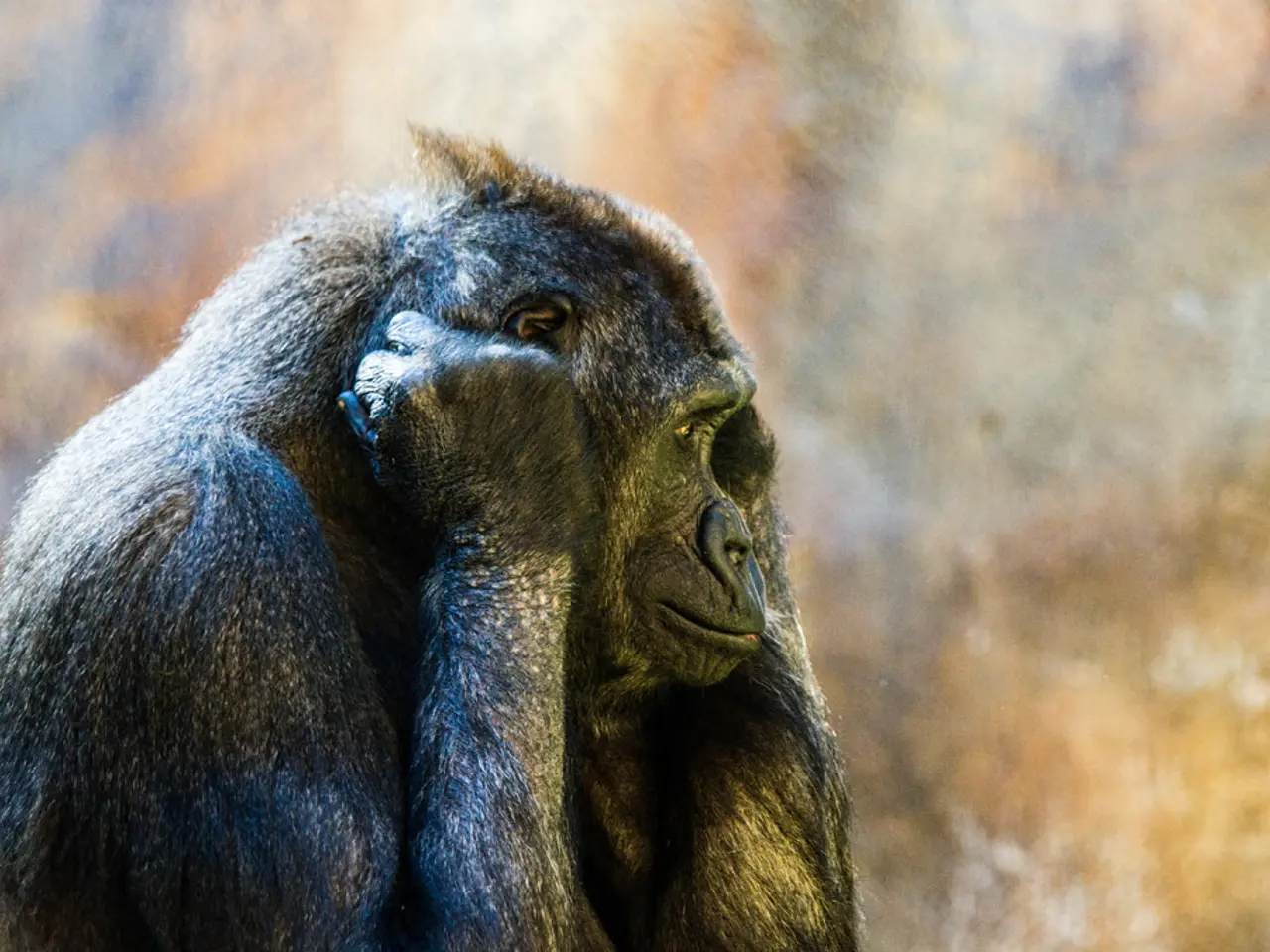Daily consumption of alcohol by chimps, according to a recent study
In a groundbreaking study conducted in Africa, researchers have provided concrete evidence supporting the theory that humans may have inherited from primates a taste for alcohol and the ability to metabolize it.
The study, led by Aleksey Maro from the University of Exeter, observed wild chimpanzees consuming fermented fruit regularly in Guinea-Bissau. The findings reveal that these primates take in about 14 grams (half an ounce) of alcohol per day, equivalent to a pint of beer for a human, adjusted for body size.
The 'drunken monkey theory,' first proposed by US biologist Robert Dudley over a decade ago, suggests that humans' liking for alcohol and our ability to metabolize it stems from our primate ancestors ingesting it daily through the fruit they ate. This theory has gained more support with the new study, according to Maro, the lead author of the paper, which he describes as a 'tour de force.'
Nathaniel Dominy, a professor of anthropology and evolutionary biology at Dartmouth College, welcomed the study enthusiastically. He stated that the paper is a significant contribution to the understanding of the origins of human alcohol consumption.
However, the issue of chimps actively seeking out boozy fruit or just eating it when they find it remains under study. Another unanswered question is the biological and behavioral consequences of chronic low-level ethanol exposure for nonhuman primates.
Maro also suggests a more appropriate name for the theory could be the 'evolutionary hangover.' He aims to assess the risks and possible benefits of chimps ingesting alcohol as part of ongoing research.
In conclusion, this study provides compelling evidence supporting the 'drunken monkey theory' and sheds light on the evolutionary link between humans and fruit-eating primates. By studying our evolutionary cousins, we may learn more about ourselves and the origins of our unique taste for alcohol.






